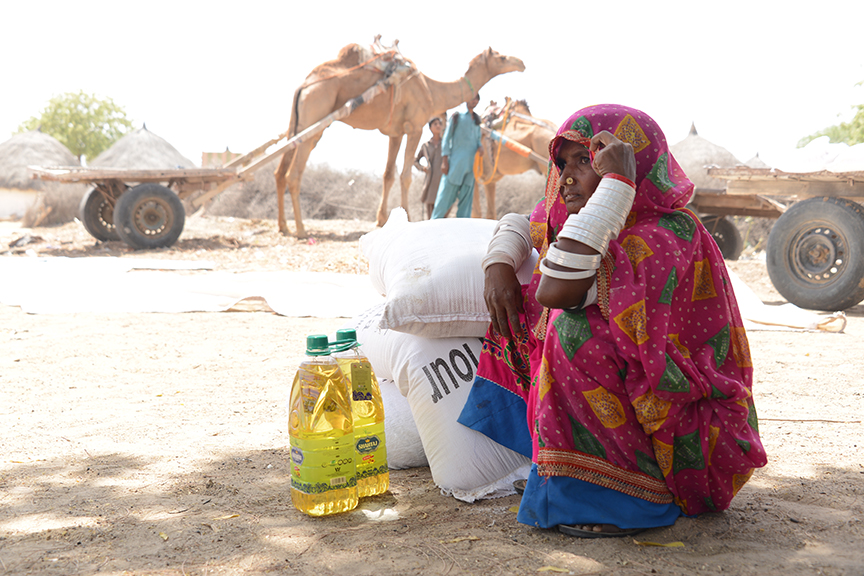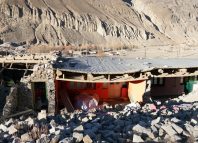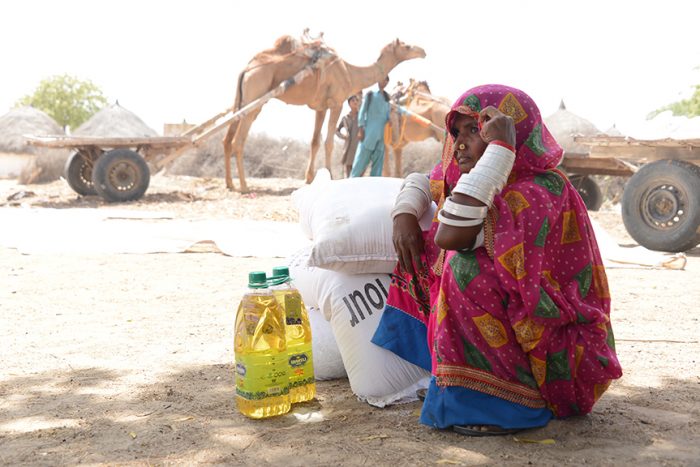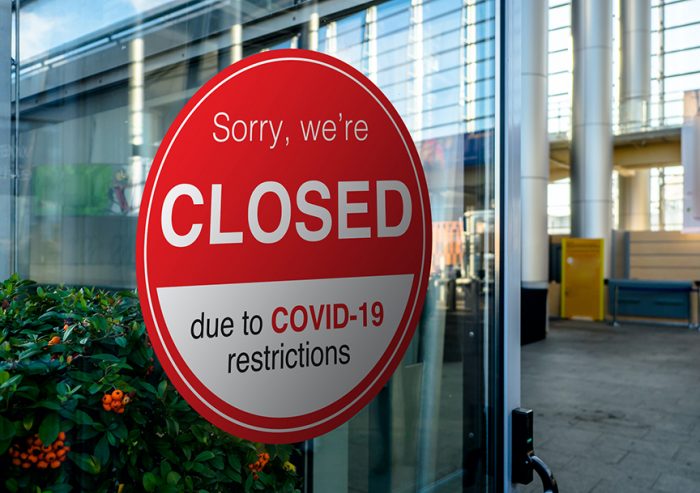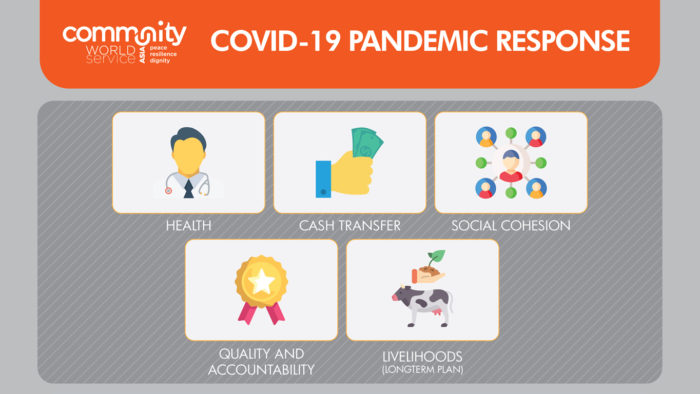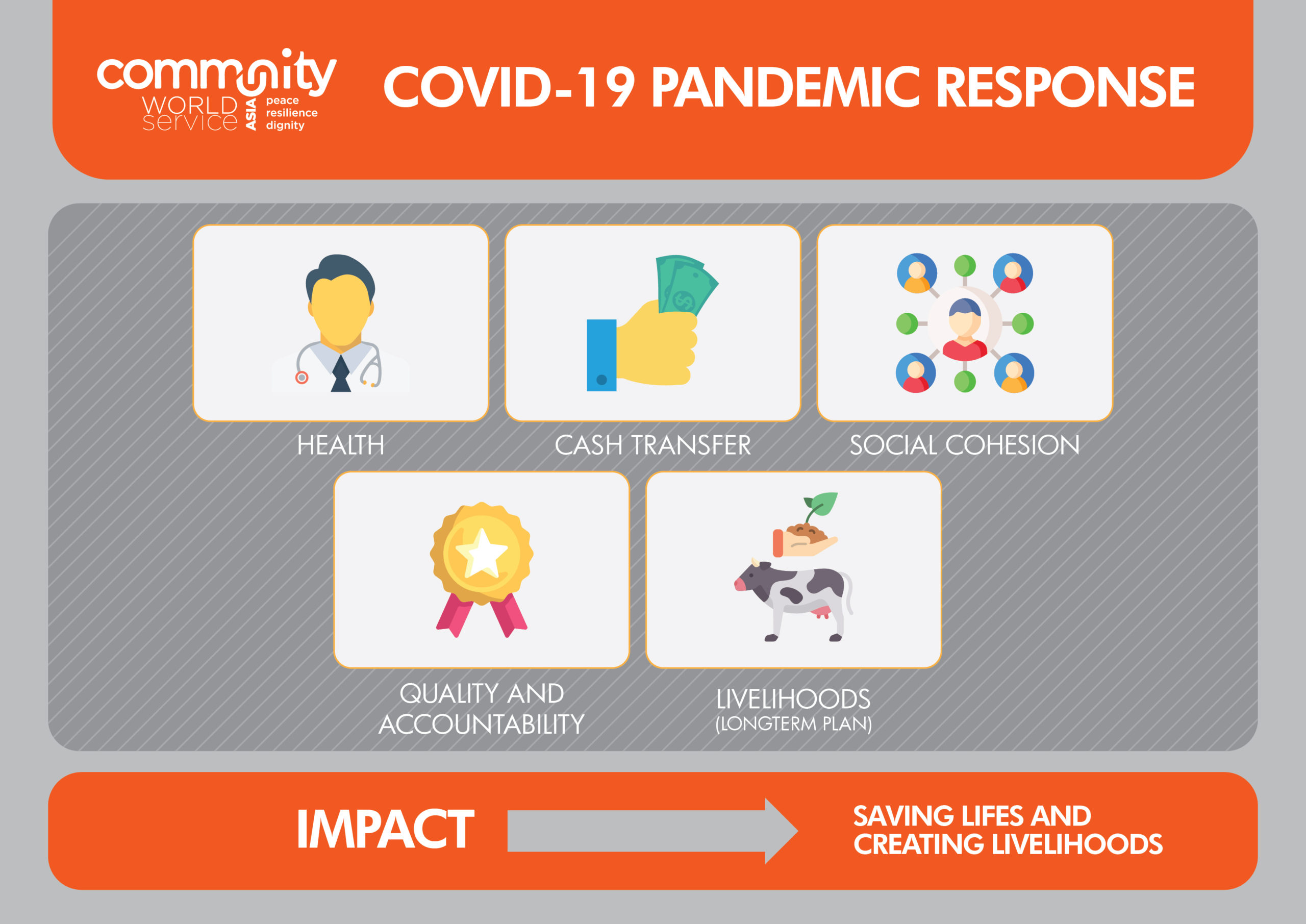Covid-19 has changed and challenged many facets of human life, including the non-profit and development ecosystem. Restricted movements have led to limited access to communities and stakeholders, thereby adversely impacting most humanitarian programming. Shrinking economies and a shift of funding countries’ financial focus on internal health sectors has drastically reduced global aid and development funding. For operating aid organisations, these funding challenges are only an addition to the existing issues of staff care, health and limited mobilisation.
Forty-four aid organisations in Pakistan gathered to discuss these challenges and share their experiences in a virtual event organised by Community World Service Asia on Organisational Sustainability and COVID-19 in April this year. Arif Jabbar Khan, a well-known leadership coach with twenty years of humanitarian and development, moderated the session, joined by panellists, Anne Masterson, Country Director- Norwegian Church Aid Pakistan (NCA- Pakistan), and Hashim Bilal, Country Director- Voluntary Service Overseas (VSO).
Inequalities during the Pandemic
Participants in the session discussed the ‘Triangular Crisis’ which refers to the complex relationships among policymakers, humanitarian agencies, and the international news media and related it to the current pandemic. Their interaction is of increasing salience to the outcomes of effective humanitarian action. The panellists and participants touched upon the adverse effects of COVID-19 including a rise in unemployment, child hunger, domestic violence, child labour, and poverty. “Asia-Pacific’s least developed countries (LDCs) have suffered multiple supply and demand shocks as global economic growth collapsed under the weight of the COVID-19 pandemic. Despite the relatively small number of COVID-19 cases reported in these countries, the pandemic quickly developed into a multidimensional crisis, owing in part to their high levels of external dependency and exposure, but also to their low levels of resilience, such as their underdeveloped healthcare systems, large informal sectors in which workers do not have adequate social protection, and limited policy space or institutional capacity to respond to shocks. These factors have magnified the impact of lockdown measures introduced to contain the spread of the coronavirus.”
The COVID-19 pandemic has shone a harsh light on inequality. “People living paycheck to paycheck in service sector jobs are in a very different position to those working in salaried jobs they can do from home. Stark gaps in wealth, health and work have gone from being chronic problems to acute ones. Additionally, the failure to control the COVID-19 pandemic has had far-reaching impacts on the global economy, with global GDP falling by 3.3 percent in 2020[1]. Even with the global economy projected to grow by 6 percent in 2021, recovery will depend on equitable distribution of the vaccine globally. Failure to do so could cost the world economy up to $9 trillion, according to the International Chamber of Commerce, with the costs born equally by wealthy and poor countries, causing more economic devastation than the 2008 financial crisis,” narrated Arif.
Moreover, the pandemic along with the economic downturn combined have hit everyone hard. But the impact has not been spread equally. While sharing the drastic effects of the pandemic on men and women, Arif said, “A report in November by UN Women found clear evidence that, although both genders have seen their unpaid workloads increase, women are bearing more of the burden than men. During the pandemic, widespread restrictions on daily life, school closures, disruption to businesses and a big rise in working from home have made many tasks more time-consuming and arduous. According to the UN Women report, more women than men have reported an increase in their workload in almost every aspect of domestic life.”
Revolutionising Humanitarian Action
Internal and external restriction on movement has gravely affected the delivery and implementation of aid. “We have not seen substantial funding for COVID, yet the situation is going to get worse. Many donors pulled back their funding from less-developed countries. The decrease in funding has a direct impact on people’s lives and our ability to sustainably provide life-saving aid to them and to reinforce fragile essential infrastructure in the way we need to,” says Arif.
According to Hashim, the virtual event has provided an effective platform to learn and adopt new strategies from various organisations in unprecedented times. While sharing VSO’s change in strategies, Hashim said, “VSO executed adoptive and integrated approaches for its strategies. We engaged our volunteer groups with communities and stakeholders to conduct awareness raising on COVID-19 and its SOPs. Additionally, we build awareness in schools on COVID-19 through poetry to gain maximum attention of students and enforce implementation of preventive measures. We also developed songs on how to avoid transmission of the virus and published them widely on social media.”
To cope with the rapidly changing situation, NCA reinforced its online communication systems to effectively use online platforms for meetings, trainings, discussions and follow-ups among staff and partner organisations. “We tried to improve our online communication systems due to the restrictions in movement and holding physical meetings. We encouraged the usage of mobile phones, WhatsApp and other internet facilities to up the online communication for updates and progress. Our main donors, particularly the Government of Norway, right from the beginning of the outbreak by March 2020, were already offering to be more flexible in the way our agreements and programmes could be utilised and implemented. This allowed NCA to immediately bring in a dimension of COVID and quickly adapt programmes to effectively operate within the restrictions of the dimensions of COVID pandemic,” narrated Anne. She further shared the change in information sharing and awareness raising programme, saying, “We expanded our existing programmes, particularly under WASH, GBV[2] and Peace Building, adding COVID-19 messages and communication for awareness raising on SOPs and preventive measures with focus on women, minority groups and affected-communities.”
Organisations will need to practice adoptive approach and civil society organisations need to invest more in education, livelihoods and health programming. “Civil society organisations and developmental institutions can work jointly and influence donors by giving them joint statements for the betterment of humanitarian actions. We need to work together to cope in this pandemic situation and reach the affected-communities effectively. Additionally, humanitarian organisations have to boost government ownership in reaching out to affected-communities and working with them in partnership in target areas. To make this possible we have to promote our humanitarian work and increase visibility,” remarked Hashim.
A participant brought forward issues of staff care while ensuring effective delivery of project activities to which Hashim shared the VSO’s health care policy during COVID 19 which included strict adherence to SOP’s, restricted staff movement, allowed flexible office timings and partial staff attendance in the office. “In addition to the healthcare policy, VSO designed and conducted mandatory trainings on duty care, safeguarding and risk communication. These trainings were delivered to national and international staff members of VSO, volunteers and community members. VSO further provided the provision of personal PPE[3] kits to avoid direct exposure to risk.”
In response to a participant’s question on ensuring continued funding, given the economic downturn globally, Anne shared NCA’s experience saying, “NCA addressed this concern while keeping face-to-face and online communication with the donors. We tend to keep them updated about how NCA is managing work and implementing the projects during a pandemic. Moreover, we identified the need of funds and prepared applications for and with national partners to raise funds further for emergency responses. We worked within and as part of different networks to advocate for continued funding in existing programmes and additional funding for COVID-19 response, particularly for vulnerable and most affected-communities. We increased advocacy efforts and NCA has been successful in getting additional funds in Pakistan and other Asian countries.”
Key Take-aways shared by Participants:
- “Humanitarian organisations have to work towards awareness raising through radio in order to reach rural and remote areas to encourage the communities there for vaccination.” Ifthekhar Farooq
- “COVID -19 has affected women and minorities in the context of mental stress. For this reason, humanitarian groups should focus on organising trainings, Focus Group Discussions and sessions on psycho-socio economic condition.” Alyas Rahmat
- “Local community leaders adopt the techniques and skills provided by the NGOs under COVID-19 response. It is difficult to adapt to quick changes; therefore, we need to support existing programs instead of introducing new ones in short time-span.” Liaquat Ali
- “Fair distribution of vaccine needs to be ensured. Additionally, travel restrictions should also be checked as more restrictions between Pakistan, North America and Europe are affecting real stories to be conveyed to the international space.” Anne Masterson
- “The topic of webinar, ‘Organisational Sustainability and COVID 19’, is a vast field. This discussion is just the initiation and we as humanitarian practitioners, have to work towards making efficient strategies, both at organisational and national level.” Arif Jabbar
[1] https://www.usglc.org/coronavirus/economies-of-developing-countries/
[2] Gender-Based Violence
[3] Personal protective equipment








